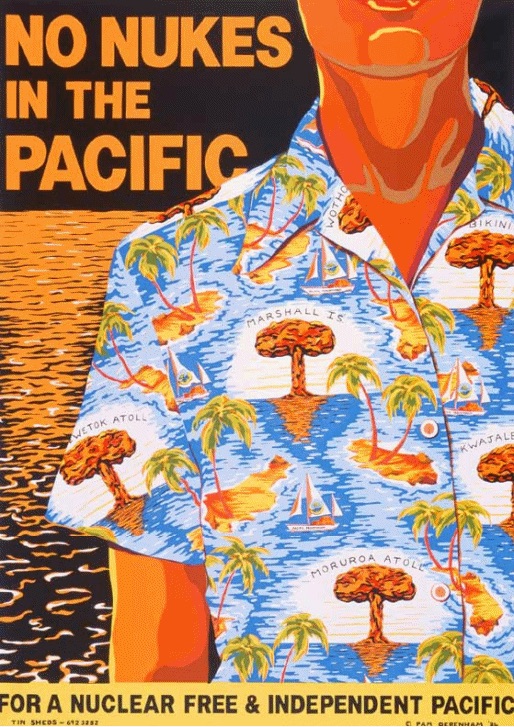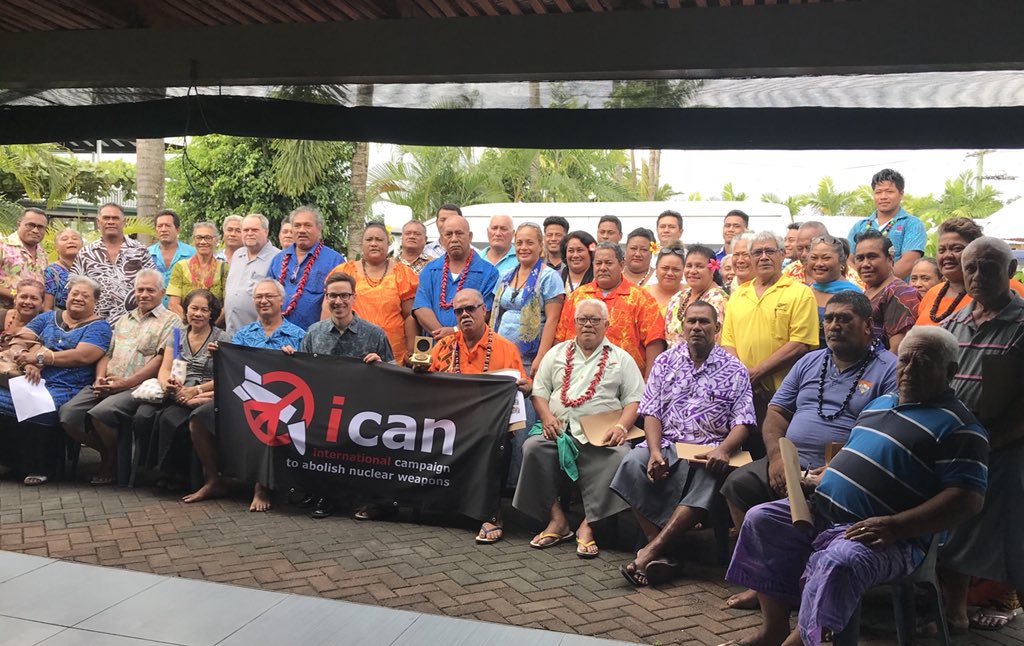Pacific Islands leading the way
The Pacific has a unique voice to add to the calls for the ban on nuclear weapons, as we have a unique and toxic history with these weapons.
From 1946 to 1996, some 300 nuclear test explosions were conducted in the Pacific. Their impact on the fragile ecology of the region and the health and mental well-being of its peoples has been profound and long-lasting. Pacific islanders continue to experience epidemics of cancers, chronic diseases and congenital abnormalities as a result of the radioactive fallout that blanketed their homes and the vast Pacific Ocean, upon which they depend for their livelihoods.
Pacific nations have been among the earliest to sign and ratify the Treaty on the Prohibition of Nuclear Weapons since it opened for signature on 20 September 2017.
REPORT: Prohibiting nuclear weapons – a Pacific Islands priority (2017)
SPOKEN WORD: “Monster” – Kathy Jetnil-Kijiner. Recorded in Hiroshima and dedicated to the nuclear weapon ban treaty negotiations (2017)
VIDEO: watch Marshall Islands advocate Danity Laukon present to the 2021 UN meeting to commemorate the International Day Against Nuclear Tests (8 September 2021)
VIDEO: watch Marshall Islander Abacca Anjain-Maddison deliver ICAN’s statement after the adoption of the Treaty (7 July 2017)
VIDEO: watch Fijian activist Vanessa Griffen’s statement to the nuclear weapon ban treaty negotiations (2017)
VIDEO: watch Yankunytjatjara-Anangu woman Karina Lester present an Indigenous Statement to the nuclear weapon ban treaty negotiations (2017)
READ: the late French Polynesian activist Roland Oldham’s statement to the nuclear weapon ban treaty negotiations (2017)
Image: Pacific meeting in Samoa, August 2018.
PACIFIC ISLAND CONTRIBUTIONS TO THE UN BAN TREATY NEGOTIATIONS 2017
Working Paper: Papua New Guinea; Possible elements for a nuclear-weapon-ban-treaty
Statement: Fiji
Statement: Marshall Islands
Statement: New Zealand
Statement: Papua New Guinea

Image: Poster by Pam Debenham, 1984.

